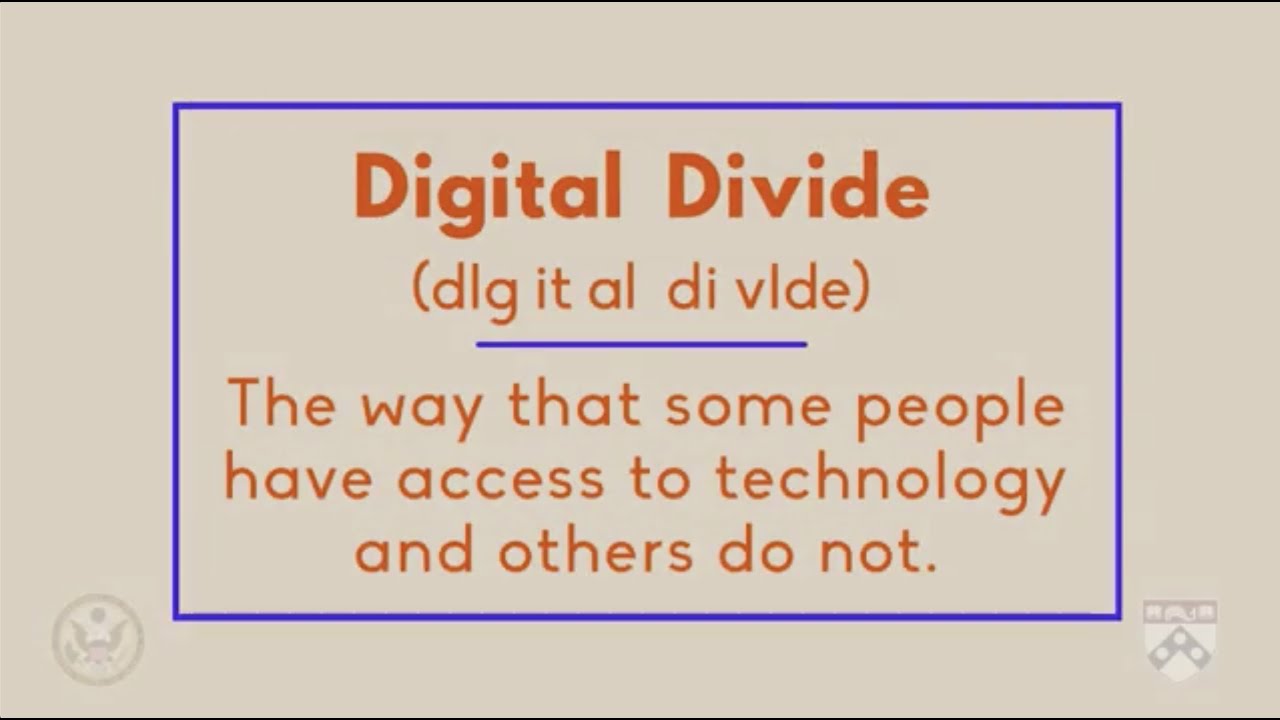The Influence Of The Digital Divide On Access To News - News Access In The Digital Age
The influence of the digital divide on access to news has a significant impact on news, which can have far-reaching consequences. The lack of access to news can limit people's ability to make informed decisions, hinder their overall economic and social progress, and even affect democracy.
Apr 06, 2023165K Shares2.2M Views

The digital divide is a significant issue that affects access to information and technology in various parts of the world. In today's society, access to news is essential for individuals to stay informed and make informed decisions.
Unfortunately, the digital divide can limit people's ability to access news, leaving them at a disadvantage. In this article, we will explore the influence of the digital divide on access to newsand its impact on society.
The Influence Of The Digital Divide On Access To News
The influence of the digital divide on access to news cannot be overstated. The digital divide refers to the gap between those who have access to technology and those who do not. This gap can limit people's ability to access news, leaving them at a disadvantage.
Access to news is essential for individuals to stay informed and make informed decisions.
However, the digital divide can create barriers that limit access to news, such as limited or no access to digital news platforms, lack of access to devices that can access digital news, and unreliable sources of news in areas with limited access to the internet.
Furthermore, the digital divide can affect the quality and diversity of news that people receive. In areas with limited access to digital news platforms, people may rely on unreliable sources of news, such as social media or word of mouth, which can lead to misinformation.
The limited availability of digital news platforms can also result in a narrow range of opinions and viewpoints, limiting the diversity of information that people receive.
The Digital Divide
The digital divide refers to the gap between those who have access to technology and those who do not. This divide can be a result of economic, geographic, social, or political factors.
The digital divide can have a significant impact on access to news, especially in areas where traditional news sources are not available or are limited.
In such areas, digital media can be the only means of accessing news, and the lack of access to technology can significantly affect the quality and quantity of news that people receive.
Access to news is critical for individuals to stay informed and make informed decisions. However, the digital divide can create barriers that limit access to news.
For instance, people living in areas without internet access or with limited internet connectivity may not have access to digital news platforms. In some cases, people may not be able to afford devices that can access digital news, such as smartphones or laptops.
This lack of access can result in a knowledge gap, where individuals are not informed of important news and events.
The digital divide can also affect the quality of news that people receive.
Digital news platforms have revolutionized the way news is disseminated, but the availability of digital news does not guarantee its accuracy. In areas with limited access to the internet, people may rely on unreliable sources of news, such as social media or word of mouth.
In some cases, people may not be able to differentiate between factual news and fake news, which can lead to misinformation.
Furthermore, the digital divide can affect the diversity of news that people receive. Digital news platforms can provide access to a wide range of news sources, but this is not the case for everyone.
In some areas, there may be a limited number of digital news platforms, which can result in a limited variety of news sources. This can result in a narrow range of opinions and viewpoints, limiting the diversity of information that people receive.

New Media Challenges: The Digital Divide
Lack Of Access To Digital Resources
Lack of access to digital resources is a significant factor contributing to the digital divide. This gap in access affects individuals' ability to access information, including news, and participate in the digital world.
Geographic Disparities
One of the main reasons for digital inequality is geographic disparities. Rural areas, for example, often have limited access to broadband internet and may lack the infrastructure to support high-speed connections. In contrast, urban areas tend to have better internet access and greater access to digital devices.
Socioeconomic Status
Another major factor that contributes to the digital divide is socioeconomic status. Those with higher incomes are more likely to have access to digital resources, while those with lower incomes are less likely to have access to these resources. This creates a barrier for lower-income individuals to access news online.
Age And Education
Older adults and those with lower levels of education are also less likely to have access to digital resources, including the Internet and digital devices. This limits their ability to consume news online and stay informed.
Consequences Of The Digital Divide On News Consumption
The digital divide has consequences for news consumption, including limited access to news sources, vulnerability to misinformation, and reduced civic engagement. These consequences have important implications for democracy and public discourse.
Limited Access To News Sources
One of the most significant consequences of the digital divide is limited access to news sources. Those who lack access to digital resources may not have access to online news sources, which may be their only source of news. This limits their ability to stay informed about current events and makes it difficult for them to form opinions and participate in public discourse.
Misinformation And Disinformation
Individuals who lack access to news sources may be more vulnerable to misinformation and disinformation. They may be forced to rely on alternative sources of information, such as social media, which may be rife with inaccurate or biased information. This can have serious consequences for the democratic process and public discourse.
Reduced Civic Engagement
The digital divide can also lead to reduced civic engagement. Those who lack access to digital resources may be less likely to participate in online discussions or engage in political activities, such as voting. This can have serious consequences for democracy, as it limits the ability of individuals to participate in the democratic process and have their voices heard.
People Also Ask
How Can The Digital Divide Limit Access To The News?
The digital divide can limit access to news by creating barriers such as limited or no access to digital news platforms, lack of access to devices that can access digital news, and unreliable sources of news in areas with limited access to the internet.
How Can Governments And Organizations Bridge The Digital Divide?
Governments and organizations can bridge the digital divide by providing affordable access to technology and reliable internet connectivity in areas with limited access to digital news.
Why Is It Important To Address The Influence Of The Digital Divide On Access To The News?
It is important to address the influence of the digital divide on access to news to ensure that everyone has access to accurate and diverse news sources, regardless of their geographic, economic, social, or political circumstances, and to promote a more informed and democratic society.
Conclusion
The influence of the digital divide on access to news has a significant impact on news, which can have far-reaching consequences. The lack of access to news can limit people's ability to make informed decisions, hinder their overall economic and social progress, and even affect democracy.
To bridge the digital divide, governments, and organizations must work towards providing affordable access to technology and reliable internet connectivity in areas with limited access to digital news.
By doing so, they can ensure that everyone has access to accurate and diverse news sources, and help create a more informed and democratic society.
Latest Articles
Popular Articles
